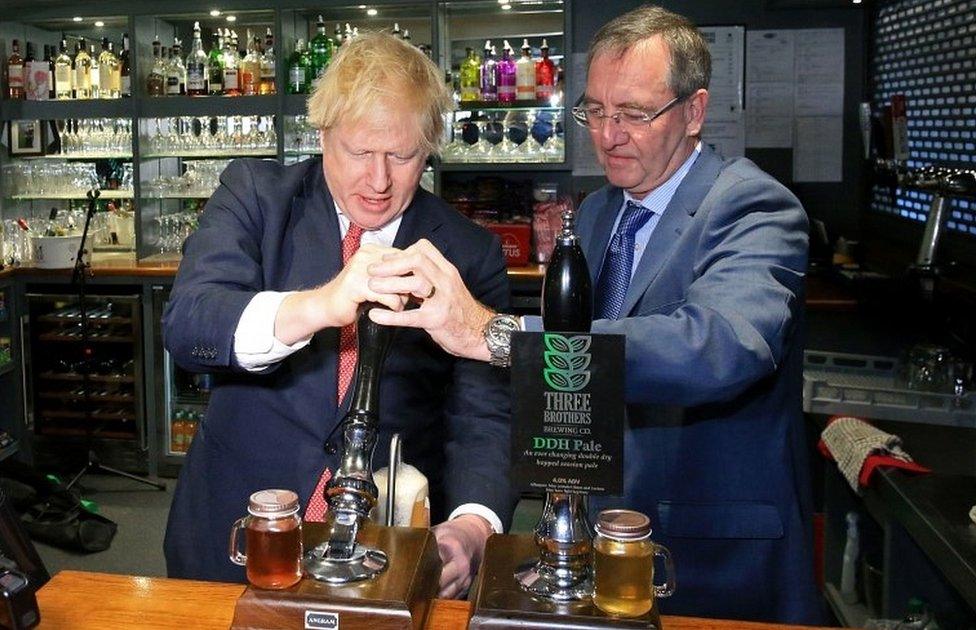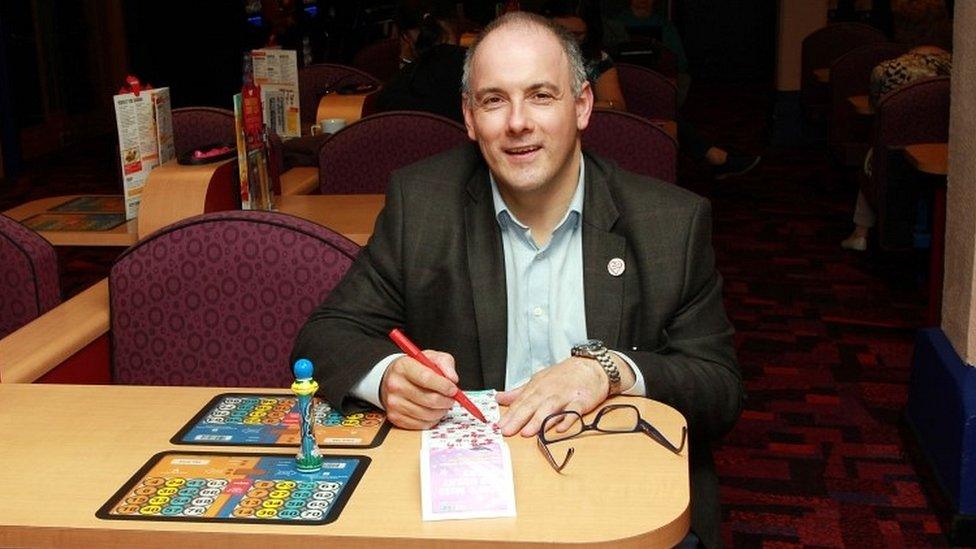Can Tories and trade unions be friends?
- Published

Boris Johnson's Conservative Party has taken seats like Sedgefield which were once seemingly unwinnable
The Conservative Party and trade unions have a history of troubled relations. But one Tory MP thinks they can work together for the good of each other - and the country.
"Trade unions are a very good thing," says Robert Halfon.
They're not words one would expect from a self-described "tribal" Conservative MP, external who, growing up, saw his party's leadership engage in a year-long battle - which sometimes turned violent - against the National Union of Mineworkers (NUM).
The miners' strike of 1984-5 was the bitterest industrial dispute in recent UK history. The NUM's eventual defeat, and the subsequent closure of the UK's deep coalmines meant that, for many trade unionists, Tories became hate figures.
Margaret Thatcher, prime minister at the time, branded striking miners' leaders part of the "enemy within"., external
'No gimmicks'
So how are relations between Tories and unions these days?
"The problem is there's always a Pavlov's dog reaction on both sides," says Mr Halfon. "You mention Tories to trade unions and they say 'no way.' And, on the Tory side, mention unions and they just think of strikes and pickets. And trade unionism is much bigger than that."
Mr Halfon, honorary president of the Conservatives' Union Blue group, wants his party to change its pitch to potential members. Like some unions, it should offer perks such as private healthcare and travel discounts, legal representation, and better access to loans and insurance, he argues.
"It can't be gimmicks," Mr Halfon, MP for Harlow, in Essex, says. "People aren't going to join for a Nando's card. This is revolutionary for the Conservative Party and it would be a very, very different model of membership.
"Nowadays you can join the party by the internet, which is great. But what do you get for joining? Absolutely nothing, apart from letters asking for money and voting in a leadership contest or for a candidate."
But there is one perk common to Conservative and Working Men's Clubs, he says.
"They're very good because you can actually get a pint of Guinness for a very decent price."

Robert Halfon says the Conservative Party should offer members union-style perks
At December's general election, Boris Johnson's party made incursions into areas where Labour - and unions - once dominated political life. The County Durham seats of Bishop Auckland and Sedgefield, formerly held by Tony Blair, were among those that turned blue.
Support for Brexit and Mr Johnson's promise to "get it done" is cited as a major cause. After his election win, the prime minister acknowledged that many lifelong Labour voters had "lent" the Conservatives their backing and vowed to repay them.
"I think the elections made a huge difference to our party," Mr Halfon says.
"There are more Tory MPs who have been trade union members than before. The party should make it its main mission to support trade unionism as a model.
"People have got to think imaginatively. We live in an atomised society and I want institutions that bring people together."
In 1953, the Conservative Party had an estimated 2.8 million members., external By last year the figure, as reported by then-chairman Brandon Lewis, external, was 180,000.
Trade unions, at their peak in the late 1970s, had around 12 million members. Since then several laws have come into force aimed at making industrial action harder to organise - most notably those passed under Mrs Thatcher's Conservative government.
'Constructive discussion'
"Both we and the unions have seen a decline, but the Conservative Party would give our right hands to have millions of members," says Mr Halfon.
Of the 48 unions comprising the Trades Union Congress (TUC), 12 are affiliated to Labour., external
Mr Halfon, himself a member of the non-party-aligned Prospect union, suggests the Tory leadership can work with "moderate" and "sensible" trade unionists, without allowing legalising now banned practices like closed shops and secondary picketing.
He has even suggested that a union could become affiliated to the Conservative Party, but there is little sign of this happening soon.
"You have to repeat the message again and again and again before anything gets changed," Mr Halfon says.
He and Len McCluskey, general secretary of the huge Labour-backing Unite union and a vocal supporter of Jeremy Corbyn as party leader, had a "constructive discussion" a few years ago, he adds.
But what does the TUC - like most of its members officially politically neutral - think?
"I've met Robert Halfon on a number of occasions," says general secretary Frances O'Grady. "He's somebody we may not agree with on many things, but he clearly sees a role for trade unions in doing the bread and butter of making sure that people get a fair deal at work.
"How others [in the Conservative Party] think, we have yet to find out."